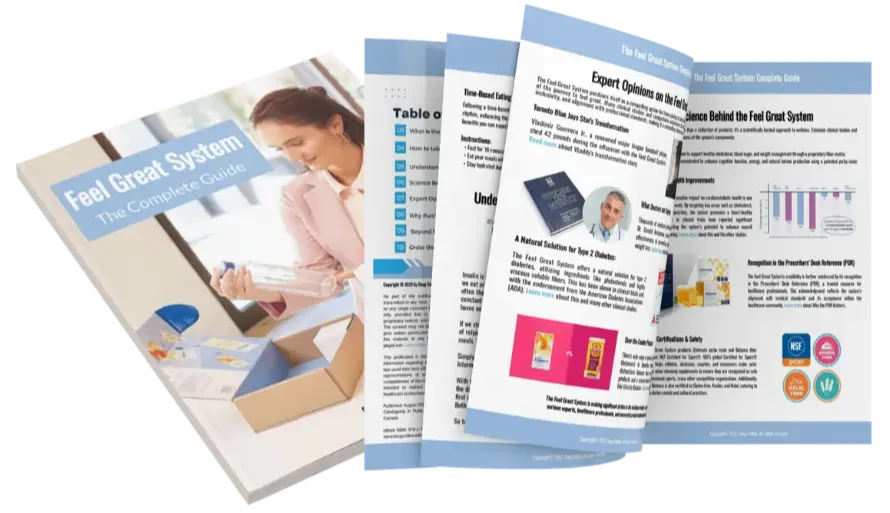Ultra-Processed Foods and Your Health: What Every Busy Professional Needs to Know
Apr 11, 2023
Global obesity rates are climbing, and alarmingly, children today may have shorter life expectancies than their parents due to obesity-related health complications.
The food industry plays a substantial role in this crisis. The documentary "How Ultra-Processed Food is Slowly Killing Us" delves into the connections between processed foods, obesity, and consequent health risks including diabetes, heart disease, and liver failure. Join Chef Simon Gault as he embarks on a revealing quest to understand obesity's truths and the critical need to prioritize our health.
Article at a Glance
- Obesity rates are on the rise across the globe, and for the first time in history, children are facing shorter lives than their parents due to health issues associated with obesity.
- The food industry is a significant contributor to this epidemic and uses low-fat, high-sugar processed foods that are harmful to our health.
- The documentary explores the link between processed food, obesity, and its associated health risks, such as diabetes, heart disease, and liver failure.
- Sugar consumption is becoming increasingly problematic as it is associated with a range of health issues, including liver disease, heart disease, and diabetes.
- The documentary emphasizes that not all fats are bad for us and highlights the social stigma associated with obesity.
- Chef Simon Gault undergoes medical tests to show how unhealthy food choices affect our bodies and emphasizes the importance of a healthy diet and exercise.
- Scientific technology is used in the documentary to measure body fat and diagnose health conditions.
- The constant high levels of glucose in the blood caused by high glycemic index foods can lead to major damage in the body.
- Ultra-processed foods dominate modern diets, containing high calorie, low nutrient ingredients such as refined starch, sugar, and vegetable oils.
- Making changes in lifestyle and diet can help prevent or reverse metabolic diseases and improve overall health.
The Obesity Epidemic: A Global Health Crisis
The documentary emphasizes that obesity is now the biggest health crisis in the world. The rise of ultra-processed foods is a primary culprit, and the food industry uses low-fat, high-sugar processed foods that are harmful to our health. Processed foods are often high in calories, salt, and sugar and contain low nutritional value. The documentary reveals that sugar comes in many forms, both refined and natural, and there are over 50 names for sugar in our food. Sugar consumption is becoming increasingly problematic as it is associated with a range of health issues, including liver disease, liver failure, heart disease, and diabetes.
Ultra-Processed Foods: A Primary Culprit
Leading experts discuss the correlation between fat intake and heart disease, emphasizing that not all fats are bad for us. The US Department of Agriculture developed a food pyramid in the early 1990s, recommending that we eat more bread, cereals, rice, and pasta. However, this pyramid did not specify what sort of carbohydrate foods we should consume. Recent studies have shown that low-carb diets are more effective in promoting weight loss and reducing the risk of heart disease than low-fat diets.
The Harmful Effects of Processed Foods on Health
The documentary also highlights the social stigma associated with obesity. Obese people are less likely to be employed, form relationships, and earn less as adults. The negative impact on physical and mental health, self-esteem, and quality of life is substantial. Obesity is also associated with a range of different cancers, Alzheimer's disease, cognitive decline, and impairment as we get older.
Chef Simon Gault undergoes medical tests to show how unhealthy food choices affect our bodies. He takes viewers through his journey of change, emphasizing the importance of a healthy diet and exercise. The documentary serves as a wake-up call to viewers to make healthier food choices and prioritize their health.
Scientific technology is also used in the documentary to measure body fat and diagnose health conditions. The liver turns excess fructose into liver fat, which can contribute to heart disease, obesity, and non-alcoholic fatty liver disease. Insulin resistance is associated with type 2 diabetes, hypertension, cancer progression, and dementia. Consuming processed food can cause obesity, diabetes, tumors, cancers, and loss of mental functions. Visceral fat stored around vital organs is the worst kind of fat and is a key factor in obesity and diabetes.
The Virgo family's typical weekly grocery shop is featured in the documentary, including processed and ultra-processed foods. More than 200 types of breakfast cereals are available, but essentially the same products. Processed food makes up almost 80% of what's available in the average supermarket and is dominated by refined starch, sugar, and cheap vegetable oils.
Constant high levels of glucose in the blood caused by high glycemic index foods can lead to major damage in the body. Cells in the eye, kidneys, blood vessels, and lining of blood vessels can't control glucose uptake and die, leading to blood clots and hardening of arteries. Loss of beta cell mass due to damage can lead to a diabetes diagnosis.
The documentary also highlights the controversy surrounding sugar addiction and its effects on health. The American Heart Association and other organizations recommended a low-fat, high-carb diet, which led to an increase in sugar consumption.
Sugar consumption is also a significant focus of the documentary, as it can cause leptin resistance and increased insulin production, leading to a range of health issues. There is some controversy surrounding sugar addiction and its effects on health, but the evidence suggests that fructose causes metabolic mayhem in the human body. Excess fructose is turned into liver fat, which can contribute to heart disease, obesity, and non-alcoholic fatty liver disease. Insulin resistance at the liver is associated with type 2 diabetes, hypertension, cancer progression, and dementia.
The documentary explores the dominance of sugar in our diets, with many foods containing added sugars, such as bread, orange juice, sauces, and cereals. In the 1960s, fat was blamed for heart disease, and sugar was not considered a problem. The American Heart Association and other organizations recommended a low-fat, high-carb diet, which led to an increase in sugar consumption. The US Department of Agriculture's food pyramid recommended eating more grain foods, many of which were high glycemic index foods. High glycemic index foods spike blood sugar levels quickly, while low glycemic index foods are more slowly digested and absorbed.
The High Glycemic Index (GI) Foods and the Damage They Cause
The constant high levels of glucose in the blood caused by high glycemic foods can lead to major damage in the body. Cells in the eye, kidneys, blood vessels, and lining of blood vessels can't control glucose uptake and die, leading to blood clots and hardening of arteries. Loss of beta cell mass due to damage can lead to a diabetes diagnosis. Bad nutritional advice promoting low-fat, high-carb diets for the past 50 years may have contributed to diabetes and related complications.
Ultra-processed foods dominate modern diets, containing high calorie, low nutrient ingredients such as refined starch, sugar, and vegetable oils. The Virgo family's typical weekly grocery shop, including processed and ultra-processed foods, is used as an example of how these foods make up almost 80% of what's available in the average supermarket. Consuming processed food can cause obesity, diabetes, tumors, cancers, and loss of mental functions.
Making Changes to Improve Health and Prevent Metabolic Diseases
Visceral fat stored around vital organs is the worst kind of fat and is a key factor in obesity and diabetes. Excessive visceral fat can lead to liver damage and a compromised liver function. A high-fat diet can contribute to metabolic diseases like type 2 diabetes. Making changes in lifestyle and diet can help prevent or reverse metabolic diseases and improve overall health.
In conclusion, the ENDEVR Documentary, "How Ultra-Processed Food is Slowly Killing Us," is a powerful call to action for individuals to take control of their health and make healthier food choices. The rise of obesity and related health issues is a significant global health crisis that is placing increasing pressure on health systems. The documentary highlights the importance of awareness of the nutritional value of the foods we consume and regular medical checkups. By making small changes to our diet and lifestyle, we can improve our physical and mental health and reduce the risk of developing obesity and related diseases. It's time to prioritize our health and break free from the harmful cycle of ultra-processed food consumption.
Ready to Feel Better Than You Have in Years?
Try the Feel Great System Today

More energy. Better focus. Healthy blood sugar support. Sustainable weight loss.
Even if everything else you tried before has failed.
Order now with a 100% satisfaction guarantee.
Have questions? Contact Doug:
Click the Message/Chat Button
Send Email
Call/Text: 1-902-201-0245


